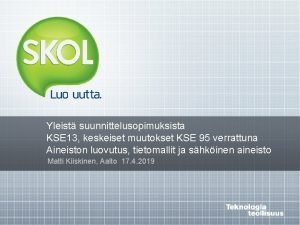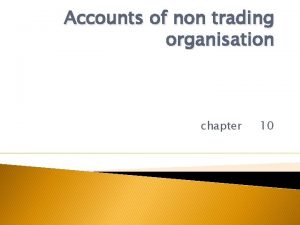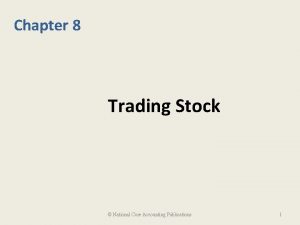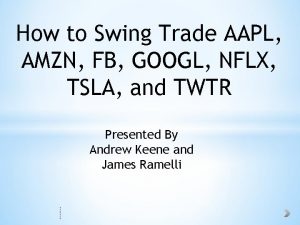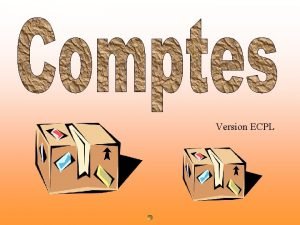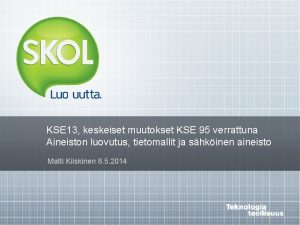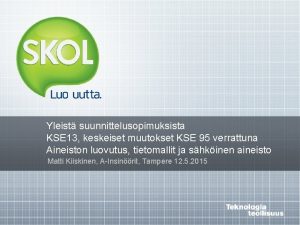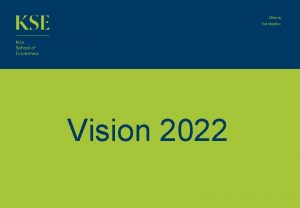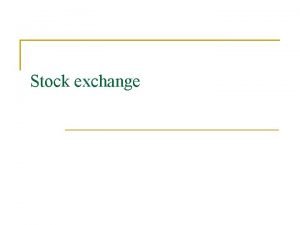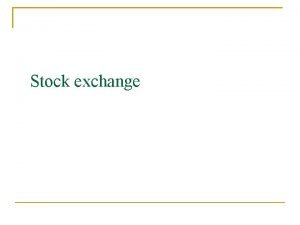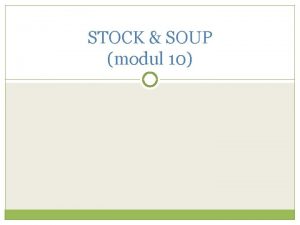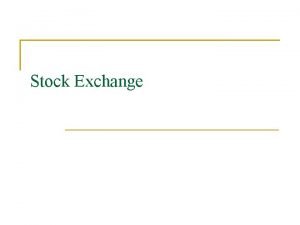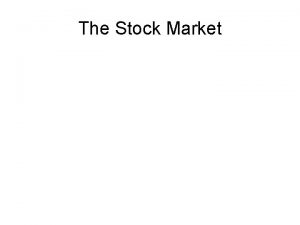Lecture 7 Trading at KSE Trading at Stock













- Slides: 13

Lecture 7 Trading at KSE

Trading at Stock Exchange • To buy and sell shares at stock exchanges, investors have to open accounts with brokerage houses • In Pakistan, most of the brokerage houses require initial deposit of Rs. 100, 000, some allow deposit of Rs. 50, 000 • There are 200 member of KSE

Trading at Stock Exchange • After opening an account, an investor can trade by placing orders through phone, or internet (live accounts) • Orders placed for purchase of shares are called bid order • Orders placed for sale of shares are called offer orders

Type of Orders • Broadly classified: Two types of orders • Limit Orders • Market Orders

Limit Orders • When an investor specifies the price at which he is willing to buy or sell, such orders are called Limit order • Limit orders are sorted on the basis of price and then on first come and first serve basis • Bid orders with highest bid price are placed at the top • Offer orders with the lowest offer prices are placed at the top

Orders Sorting • Orders with similar prices are sorted on the basis of first come first serve • Orders at the top are fulfilled first • Limit orders are fulfilled only when matching price is available i. e. a bid order of 100 shares at Rs. 30 each will have to wait until someone offers his shares at Rs. 30 • Limit orders are fulfilled neither below nor above the price at which they are placed • Quantity matching is not necessary

Example Orders Sorting • 1. A bid order of 5000 shares of NML is placed with Rs. 70 a share SNo Bid Q Price Offer Q Price 1 5000 70. 00 - - • 2. Another investor bids 100 shares of NML at Rs. 71. 01 SNo Bid Q Price Offer Q Price 1 100 70. 01 - - 5000 70. 00

• 3. An order for sale of 3000 shares of NML at Rs. 72 is placed SNo Bid Q Price SNo Offer Q Price 1 100 70. 01 1 72 2 5000 70. 00 3000 • 4. A purchase order of 700 share at Rs. 70. 01 is placed SNo Bid Q Price SNo Offer Q Price 1 100 70. 01 1 72 2 700 70. 01 3 5000 70. 00 3000

• 5. Someone offers 1000 shares of NML at Rs. 70. 01 a share SNo Bid Q Price SNo Offer Q Price 1 5000 70. 00 1 200 70. 01 3000 72. 00 • 6. A bid order to buy 1000 shares at market is placed SNo Bid Q Price SNo Offer Q Price 1 5000 70. 00 1 72. 00 2200

Market Orders • Orders that are to be executed immediately at currently placed limit orders. It doesn’t have any price or time restriction • If a market order is not completely fulfilled from the top limit order, it is fulfilled from the next limit order in the sequence

Types of limit orders • Stop Loss order: The stock has to be sold if its price falls bellow stipulated level • Allow investor to avoid unexpected losses • Also useful in very uncertain markets • At KSE, maximum variation in prices is 5% per day • One can place stop loss order at 3% and avoid the 2% loss, if anything abnormal happens with the stock

• Stop-Buy Orders: Specifies that a stock should be bought when price of a security rises above a limit • It is usually used with short-sell to limit possible losses from short position • At KSE, orders have a validity of one day

Broker’s Commission; Live Trade Online
 Kse 1995
Kse 1995 Kse hesaplama
Kse hesaplama Recompostion
Recompostion Ytv 2012
Ytv 2012 01:640:244 lecture notes - lecture 15: plat, idah, farad
01:640:244 lecture notes - lecture 15: plat, idah, farad Trading and non trading organisation
Trading and non trading organisation Accounting for trading stock
Accounting for trading stock Stockmarketgame.org login
Stockmarketgame.org login How the stock market works.com
How the stock market works.com Fbgoogl
Fbgoogl General ledger trading stock
General ledger trading stock Kriteria brown stock
Kriteria brown stock Characteristics of common stock and preferred stock
Characteristics of common stock and preferred stock Stock initial
Stock initial
